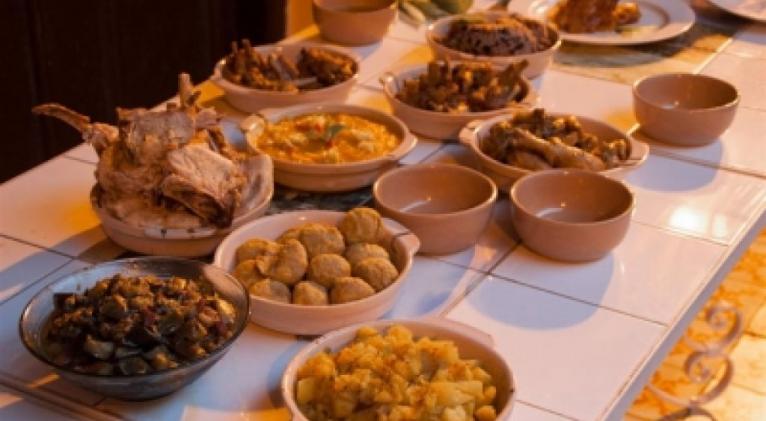Culinary heritage also forms part of the Cuban being (+ Photos)

The culinary traditions inherited from the French immigrants and African slaves, who arrived In Cuba in the late 18th century and throughout the 19th, survive today mimicked in typical dishes of the daily-life of Cuban families and are, in addition, part of the huge intangible heritage that identifies those born on this Caribbean island.
The tasty Cuban “ajiaco” (meat, corn, chicken and potato stew soup), buñuelos de malanga (malanga doughs), the emblematic congrí oriental (Cuban red beans and rice), the different ways of preparing turrón de coco (coconut nougat), the amazing quimbombó con carne (okra with meat) and harina dulce (sweet cornmeal) or harina salada (salted cornmeal), both with “filling”, not only stimulate our palate but also evoke the most deeply-rooted feelings in Cubans, emotions linked to family and home.
This tasty culinary tradition, which is part of the intangible heritage of Tumba Francesa Society "La Caridad de Oriente" and finds in the aforementioned group one of the most deeply-rooted and oldest presences in Cuba, was exhibited in Santiago de Cuba’s Casa Dranguet, during an exchange event that derived into an exercise of identity reaffirmation.
Queli Figueroa Quiala, cultural promoter of Tumba Francesa, assured that, in Cuba’s colonial time, local masters gave the slaves three days to party and rest every year-end and they used to take advantage of them to develop all this culinary heritage that remains in our institution. We take advantage of commemorative dates, such as, its founding date and the celebration tribute to the Virgen de la Caridad del Cobre, to develop part of this culinary heritage, and still preserve the Cuban red beans with rice, roast pork, okra with banana balls, very spicy, so we like it at Tumba Francesa, as well as salads, fritters and fries in general, including those made from malanga, cornmeal, cod, these foodstuffs have a different flavor in our institution; we also keep boniatillo or "mala rabia" (Cuban sweet potato pudding), turrones de maní (peanut nougats), turrones de ajonjolí (sesame nougats), dulce de coco (coconut fudge); among beverages we can find prú oriental (refreshing brown-coloured drink with medical properties) that cannot be missed, aromatic herb tea, which gets a special scent with rum. We try to keep this heritage that has been bequeathed to us from generation to generation”.
The exhibition, which is part of the commemorative program for the 155th founding anniversary of Tumba Francesa Society "La Caridad del Oriente" –declared Masterpiece of the Oral and Intangible Heritage of Mankind by UNESCO in 2003– featured the participation of members from the Culinary Association, who assured that some of the dishes, in their recipes more attached to the 18th-19th century old-fashioned way, do not have a flavor at all usual, but are also very tasty.
They also assured that it required some study because there are other ways to prepare some dishes, like coconut nougats that can be combined with peanut, orange, pineapple and coffee, which are not the most common presentations.
According to the investigators, the farms of Frenchmen Antonio Venet and Santiago Danger, located on the heights of the town of El Caney, saw the birth of the Tumba Francesa Lafayette, named thus in honor to the abolitionist general. It split into two in 1905 and one of them, La Caridad de Oriente, survives until the present day since that February 24, 1862.
It keeps in all its splendor the contributions bequeathed by the French, Dahomey-Benin, Congolese and Nigerian cultures –on the island of Cuba–; as a genuine example of the tradition and expression of the popular culture in eastern Cuba.
Translated by Jorge Mesa Benjamin / Cubasi Translation Staff













Add new comment